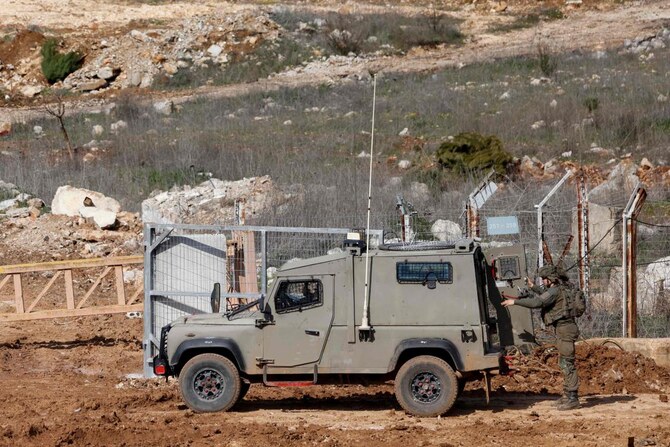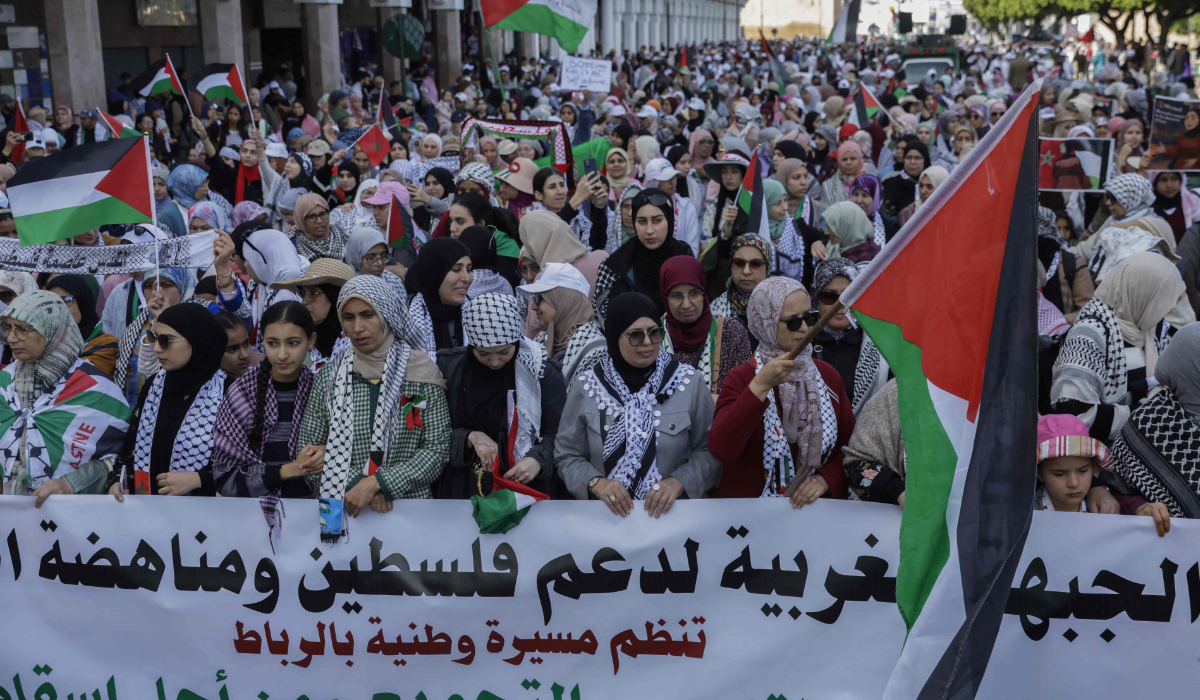BEIRUT: The UN’s Lebanon envoy and peacekeeping force on Tuesday warned Israel’s delayed withdrawal from the country violated the UN resolution that ended the 2006 Hezbollah-Israel war and formed the basis for a recent truce.
“Today marks the end of the period set for the withdrawal of the Israel Defense Forces... and the parallel Lebanese Armed Forces deployment to positions in southern Lebanon,” the joint statement said, adding: “Another delay in this process is not what we hoped would happen, not least because it continues a violation of United Nations Security Council Resolution 1701 (2006).”
Israeli troops withdrew from all but five points in south Lebanon on Tuesday, allowing displaced residents to return to border villages largely destroyed in more than a year of hostilities.
“The entire village has been reduced to rubble. It’s a disaster zone,” said Alaa Al-Zein, back in Kfar Kila after the delayed withdrawal deadline expired Tuesday morning under an Israel-Hezbollah ceasefire deal.
Unable to reach Kfar Kila by car because of the rubble and army restrictions, residents had parked at the entrance of the village and returned on foot.
Many were returning to destroyed or heavily damaged homes, farmland and businesses, after more than a year of clashes that included two months of all-out war an ended with a November 27 ceasefire.
Israel had announced just before the pullout deadline that it would keep troops in “five strategic points” near the border, and on Tuesday its defense minister, Israel Katz, confirmed the deployment and vowed action against any “violation” by militant group Hezbollah.
On Tuesday, Lebanon said any Israeli presence on its soil constituted “occupation,” warning it would refer to the UN Security Council to push Israel to withdraw and that its armed forces were ready to assume duties at the border.
Lebanon’s army announced it had deployed in 11 southern border villages and other areas from which Israeli troops have pulled, starting Monday evening.
In a joint statement, UN envoy Jeanine Hennis-Plasschaert and the UNIFIL peacekeeping force said that at “the end of the period set” for Israel’s withdrawal and the Lebanese army’s deployment, any further “delay in this process is not what we hoped would happen” and a violation of a 2006 Security Council resolution that ended a past Israel-Hezbollah war.
Jonathan Conricus, a senior fellow at US think tank the Foundation for Defense of Democracies and a former Israeli army spokesman, said that once Lebanon’s army was “fully deployed” in the south, the Israeli army “will likely complete its withdrawal... as long as Hezbollah continues to adhere to the agreement.”
In Lebanon, the cost of reconstruction is expected to reach more than $10 billion, while more than 100,000 people remain displaced, according to the United Nations.
But despite the devastation, Zein said villagers were adamant on returning.
“The whole village is returning, we will set up tents and sit on the ground” if needed, he said, striking a defiant tone.
Others were going south to look for the bodies of their relatives under the rubble.
Among them was Samira Jumaa, who arrived in the early hours of the morning to look for her brother, a Hezbollah fighter killed in Kfar Kila with others five months ago.
“We have not heard of them until now. We are certain they were martyred,” she said.
“I’ve come to see my brother and embrace the land where my brother and his comrades fought,” she added.
Further south, dozens of cars were waiting at a Lebanese army checkpoint to be allowed into the southern villages of Taybeh and Odaisseh, an AFP photographer saw.
Nearby, women were carrying pictures of relatives who died fighting for Hezbollah in the war, while others raised the Iran-backed group’s yellow flag.
Hezbollah strongholds in south and east Lebanon as well as Beirut suffered heavy destruction during the hostilities, initiated by Hezbollah in support of ally Hamas in the wake of the Gaza war.
Under the ceasefire, brokered by Washington and Paris, Lebanon’s military was to deploy alongside United Nations peacekeepers as the Israeli army withdrew over a 60-day period that was extended to February 18.
Hezbollah was to pull back north of the Litani River, about 30 kilometers (20 miles) from the border, and dismantle remaining military infrastructure there.
Since the cross-border hostilities began in October 2023, more than 4,000 people have been killed in Lebanon, according to the health ministry.
On the Israeli side of the border, 78 people including soldiers have been killed, according to an AFP tally based on official figures, with an additional 56 troops dead in southern Lebanon during the ground offensive.
Around 60 people have reportedly been killed since the truce began, two dozen of them on January 26 as residents tried to return to border towns on the initial withdrawal deadline.
On Monday, Lebanon’s government said the state should be the sole bearer of arms, in a thinly veiled message on Hezbollah’s arsenal.
Calls for the group’s disarmament have multiplied since the end of the war that has weakened the group.





























